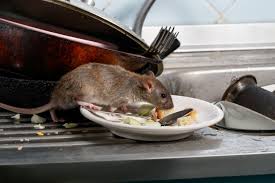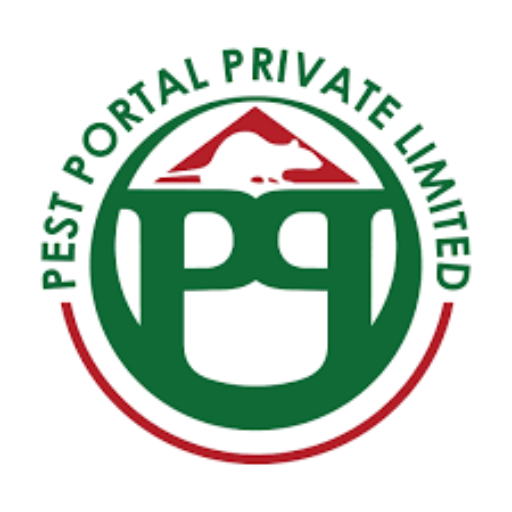
Maintaining Food Safety Amidst Rodent Infestation in Harare and Zimbabwe
Worried about maintaining food safety amidst a rodent infestation in Harare and Zimbabwe? Call 0772593344 for safe, affordable and professional rodent control today.
Rodent infestations pose a significant threat to public health and food safety, particularly in urban areas like Harare and across Zimbabwe. These pests can contaminate food sources, leading to the spread of diseases and significant economic losses. This post will delve into the pervasive issue of rodent infestation, its impact on food safety in Harare and Zimbabwe, and provide comprehensive strategies for prevention and control to ensure the safety of food supplies.
The Scope of the Problem:
Rodent infestations are a persistent challenge in many parts of Harare and Zimbabwe, exacerbated by factors like inadequate sanitation, poor waste management, and insufficient housing infrastructure. Rats and mice, the primary culprits, thrive in environments offering readily available food, water, and shelter. Overcrowded living conditions, particularly in informal settlements, create ideal breeding grounds for these pests, increasing the risk of contamination across the food chain. The problem extends beyond residential areas, impacting food production, storage, processing, and retail sectors.
Health Risks Associated with Rodent Contamination:
Rodents are known carriers of numerous pathogens, including Salmonella, Leptospira, Hantavirus, and various parasitic worms. Their droppings, urine, and saliva can contaminate food directly or indirectly through contact with surfaces. The consequences of consuming rodent-contaminated food can range from mild gastrointestinal illnesses to severe, potentially fatal diseases. Children, the elderly, and individuals with compromised immune systems are particularly vulnerable.
Specific Food Safety Concerns in Harare and Zimbabwe:
Marketplaces and street food: Open-air markets and street food vendors are particularly vulnerable to rodent infestation. Lack of proper storage facilities and inadequate sanitation practices increase the risk of food contamination. The warm climate further contributes to rapid bacterial growth, compounding the dangers.
Household food storage: Improper food storage in homes is a major contributor to rodent infestations. Crumbs, spilled food, and inadequate sealing of containers provide ample food sources for rodents.
Agricultural Production: Rodents can cause significant damage to crops in fields and storage facilities, leading to substantial food losses and potential contamination of the remaining produce.
Food Processing Facilities: Industrial-scale food processing plants require stringent hygiene protocols to prevent rodent infestation. Compromised sanitation in these facilities can lead to widespread contamination and large-scale outbreaks.
Restaurant and Catering Establishments: Restaurants and catering businesses must adhere to strict hygiene regulations to prevent rodent intrusion. Regular inspections and pest control measures are crucial to safeguarding food safety.
Strategies for Preventing and Controlling Rodent Infestation:
Effective rodent control requires a multi-pronged approach focusing on prevention, monitoring, and eradication:
1. Eradication:
Professional Pest Control: At Pest Portal Zimbabwe, we offer professional rodent control services treatment and eradication. We employ various methods, including rodenticide application (following strict safety guidelines), and can offer tailored solutions based on the severity of the infestation. Call us today on 0772593344
Integrated Pest Management (IPM): IPM involves a combination of methods to minimize rodent populations while reducing the reliance on chemical pesticides. This approach considers the environment and aims for long-term sustainable control.
Rodenticide Use: If using rodenticides, follow instructions carefully and take necessary precautions to protect children and pets. Choose bait stations that prevent accidental ingestion by non-target animals.
2. Prevention:
Sanitation: Maintaining impeccable cleanliness is paramount. Regularly cleaning and disposing of garbage properly, avoiding food spills, and promptly cleaning up crumbs are crucial steps. Proper waste management systems are vital, particularly in densely populated areas.
Storage: Store food in airtight containers, preferably in rodent-proof cabinets or shelves. Avoid leaving food uncovered, especially in areas prone to rodent activity.
Structural Integrity: Seal cracks and holes in walls, floors, and ceilings to eliminate entry points for rodents. Install rodent-proof doors and windows.
Garbage Management: Proper disposal of garbage is crucial. Use securely sealed bins and ensure regular collection services.
Community Involvement: Community-based initiatives promoting sanitation and hygiene awareness can significantly impact rodent control efforts.
3. Monitoring:
Regular Inspections: Conduct regular rodent inspections of homes, businesses, and storage facilities to detect signs of rodent activity, such as droppings, gnaw marks, and tracks.
Rodent Traps: Employ various trapping methods, including snap traps, glue traps, and live traps, strategically placed in areas with suspected rodent activity. Regular monitoring and replacement of traps are necessary.
Governmental and Community Roles in Maintaining Food Safety:
The Zimbabwean government and local authorities play a vital role in mitigating the problem of rodent infestation through:
Improved sanitation infrastructure: Investing in improved waste management systems, liquid sewage disposal, and public sanitation facilities is crucial.
Public health education campaigns: Moreover, raising awareness about the risks of rodent-borne diseases and promoting effective prevention strategies through public health campaigns.
Enforcing hygiene regulations: Also, strict enforcement of food safety regulations in markets, restaurants, and food processing facilities is necessary.
Collaboration with communities: Working with communities to implement rodent control programs and fostering collaborative efforts for improved sanitation.
Conclusion:
Rodent infestation poses a significant threat to food safety in Harare and Zimbabwe. A multi-faceted approach encompassing pest control and treatment, prevention, monitoring, and eradication, combined with strong governmental support and community engagement, is crucial to minimizing the risks associated with rodent contamination and protecting public health. By adopting the strategies outlined in this post, individuals, businesses, and communities can significantly contribute to creating safer food environments and reducing the burden of rodent-borne diseases. Remember that vigilance and proactive measures are key to ensuring food safety and protecting the health and well-being of the population.


